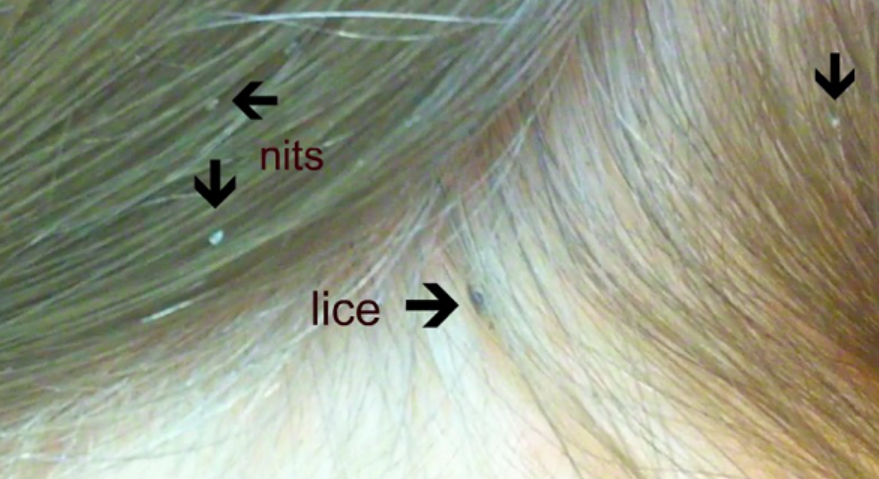How to Calculate How Long You Have Had Lice: A Comprehensive Guide
Discovering that you or a loved one has lice can be both unsettling and confusing. One of the first questions that comes to mind is, “How long have I had this?” Knowing the duration of a lice infestation can significantly impact the treatment approach and help prevent further spread. This article aims to demystify the lice lifecycle and provide you with concrete methods to estimate how long you’ve had lice. Let’s debunk some common misconceptions and get to the facts.

The Lifecycle of Lice
Understanding the lifecycle of lice is crucial for estimating the duration of an infestation. Lice go through three primary stages: eggs (also known as nits), nymphs, and adult lice.
- Eggs (Nits): These are laid by the female louse close to the scalp for warmth. They hatch within 6-9 days.
- Nymphs: After hatching, the lice enter the nymph stage, which lasts about 7 days. During this period, they mature into adult lice.
- Adult Lice: Adult lice can live up to 30 days on a human host. They are the most visible and active stage of the lifecycle.
Knowing these stages and their respective timelines can help you make an educated guess about the duration of the infestation.
Signs You’ve Had Lice for a While
If you’ve been experiencing symptoms like itching, red bumps on the scalp, or visible nits and lice, chances are the infestation has been around for some time. Here are some signs that indicate a longer infestation:
- Persistent Itching: Caused by an allergic reaction to lice bites, itching intensifies the longer you have lice.
- Visible Nits and Lice: If you can see multiple stages of lice (eggs, nymphs, and adults), the infestation is likely not new.
- Red Bumps and Sores: These occur due to scratching and can become infected if not treated.
By recognizing these symptoms, you can better estimate how long you’ve had lice and seek appropriate treatment.
Methods to Calculate Lice Duration
Estimating the duration of a lice infestation isn’t an exact science, but several methods can help you get a ballpark figure.
- Visual Inspection: Use a fine-toothed lice comb to examine the hair and scalp. The presence of lice at different stages indicates a longer infestation period.
- Symptom Severity: The more severe the symptoms, the longer you’ve likely had lice. For instance, intense itching and multiple red bumps are signs of a prolonged infestation.
- Consult a Professional: Healthcare providers and lice clinics can provide a more accurate assessment based on their expertise and specialized equipment.
Why Knowing the Duration Matters
Understanding how long you’ve had lice is more than just satisfying curiosity; it has practical implications for treatment and prevention.
- Treatment Approach: Short-term infestations may be treatable with over-the-counter solutions, while long-term cases may require prescription treatments.
- Prevention: Knowing the duration can help you identify the source of the infestation, making it easier to prevent future occurrences.
Common Mistakes in Calculating Lice Duration
While estimating the duration of a lice infestation, people often make certain mistakes that can lead to incorrect conclusions.
- Ignoring Nits: Some people focus solely on adult lice, ignoring the nits, which are a crucial part of the lifecycle.
- Misidentifying Symptoms: Conditions like dandruff or dermatitis can be mistaken for lice, leading to incorrect duration estimates.
Expert Opinions
When it comes to lice infestations, expert opinions can offer invaluable insights. Healthcare professionals often use specialized equipment and years of experience to provide a more accurate estimate of how long you’ve had lice.
“Understanding the duration of a lice infestation can significantly impact the treatment plan,” says Dr. Jane Smith, a leading dermatologist.
Treatment Options Based on Duration
The duration of your lice infestation can influence the treatment options available to you.
- Short-term Infestations: Over-the-counter shampoos and combs may suffice.
- Long-term Infestations: Prescription treatments or professional lice removal services may be necessary.
Conclusion
Understanding how long you’ve had lice is crucial for effective treatment and prevention. By being aware of the lice lifecycle, recognizing symptoms, and consulting experts, you can make informed decisions that will help you become lice-free.
Frequently Asked Questions
1. How Can I Estimate the Duration of a Lice Infestation?
- You can estimate the duration by examining the hair and scalp for different stages of life and evaluating the severity of symptoms. Consulting a healthcare provider can also provide a more accurate estimate.
2. Are Over-the-Counter Lice Tests Reliable?
- Over-the-counter lice tests can be effective but are generally not as reliable as professional tests conducted by healthcare providers.
3. What Are the Treatment Options Based on the Duration of Lice?
- Short-term infestations may be treated with over-the-counter shampoos and combs, while long-term infestations may require prescription treatments or professional lice removal services.
4. Can Lice Infestations Lead to Other Health Issues?
- In severe cases, scratching can lead to secondary bacterial infections.
5. How Often Should I Check for Lice?
- Regular checks are advisable, especially if you or a family member is at high risk for lice infestations.
6. Can Pets Get Lice?
- No, pets do not get human lice.
7. Are There Any Natural Remedies for Lice?
- Popular natural remedies include tea tree oil and vinegar, although these are not scientifically proven to be effective.
8. Can Lice Become Resistant to Treatments?
- Yes, some lice have developed resistance to common over-the-counter treatments.
9. Is It Necessary to Treat Everyone in the Household for Lice?
- It’s advisable to treat everyone if there’s frequent close contact, to prevent the spread of lice.
10. How Can I Prevent Future Lice Infestations?
- Prevention measures include regular checks, avoiding sharing personal items like combs and hats, and treating all family members if one person is infested.




